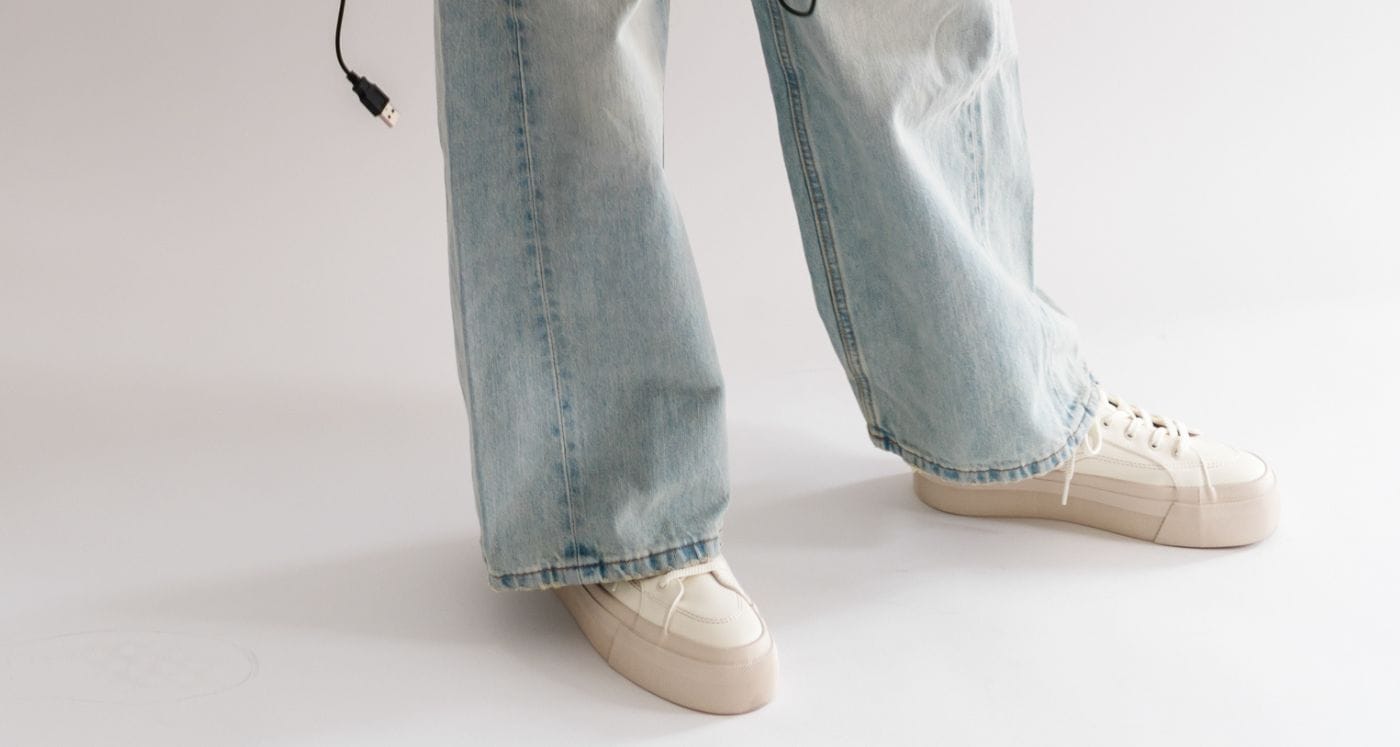Can You Deposit A Check For Someone Else?
For whatever reason, there are times when you’re not able to deposit a check directly yourself. What happens if a friend is unable to deposit their own check?
A crucial question is created in both of these cases: Can you deposit a check for someone else? You can deposit a check for someone else as long as it has the payee’s signature and includes the phrase “for deposit only.”
There’s much more nuance to this answer than what I wrote above. If depositing a check for someone else is something you’re going to need to do, I recommend you keep reading to make sure you have everything you need.
Is It Possible to Deposit a Check for Someone Else?
The short answer is yes, it is possible for you to deposit a check for someone else. The longer answer is it can only be possible under a few conditions.
As an affiliate partner of various brands and sponsored content, HerPaperRoute may earn commission on qualifying purchases. Disclaimer | Advertise With Us
As long as the phrase ‘for deposit only’ is present on the check, or it is endorsed with the signature of the payee, you shouldn’t be faced with any problems when depositing this check for someone else. This will be bank-dependent since individual banks will make their own policies.
You also will only be able to deposit the check into the payee’s account. You can’t make the check out to cash or deposit the check into your own account.
With all that being said, I would highly recommend the payee of the check make the deposit themselves. Although it is possible to deposit a check for someone else, it would be more ideal, in terms of financial security, for the payee of the check to deposit it themselves.
It’s understandable if you’re feeling nervous about the whole process of depositing a check for someone else; especially if it’s your first time. I can understand that as I was a ball of nerves the first time I deposited a check for someone else.
For whatever reason, it felt “wrong” even though it wasn’t out of the ordinary according to the teller. That’s why I have outlined a few tips for you so that you’re fully prepared when it comes time for you to hand over the check to the bank teller.
How to Deposit A Check For Someone Else
My goal in creating this guide is to ease your fears about depositing a check for someone else. I plan to do this by providing you with some simple options to ensure that the entire process runs smoothly.
Before deciding on the option you’d like to use to deposit a check, it’s imperative that you always get a receipt from the bank. This receipt provided by the bank confirms that the money was deposited correctly in the appropriate account.
This is an excellent way to provide the payee with physical proof that their money is safe, and it also covers you because the payee can’t claim that the money wasn’t deposited, correctly.
Here are some of the options you have when depositing a check for someone else:
1. The Deposit Slip Method
The best course of action to take if you want to deposit a check for someone else is for the payee of the check or multiple checks to fill out a deposit slip. The payee should then endorse all of these checks and have you deliver these to the bank.
The payee of these checks is entirely responsible for ensuring that all the necessary information is provided.
You shouldn’t expect to have any issues while at the bank. This is as long as there aren’t any discrepancies or inaccuracies present and that the payee provides all the necessary information.
All you’re going to need to do is present the deposit slip, along with the check (or checks) to the bank teller. This should result in everything running smoothly.
2. The ‘For Deposit Only’ Method
You have another option other than the deposit slip method if the payee of the check is unable to provide you with a deposit slip. This is the ‘For Deposit Only’ method, and the approach itself has a variety of different options detailed within it.
Here are the different methods you can undergo to successfully deposit a check for someone else using the ‘For Deposit Only’ option:
Option One:
The payee should write ‘For Deposit Only’ in the endorsement area if they are able to endorse the check themselves. They should also include the respective account number that they would like the money to be deposited into. This should also be detailed in the endorsement area.
This is called a restrictive endorsement and is very similar to the deposit slip method. This is largely because this option doesn’t leave much space for errors to occur.
That’s why you aren’t likely to encounter any problems at the bank while choosing this method of depositing a check for someone else.
Option Two:
This is the option you should choose if the payee can’t endorse the check with their signature. If this is the case, you can simply write in the endorsement area ‘For Deposit Only.’
This can still work even if it is a less secure method than having a check with a full restrictive endorsement detailing the account number and signature of the payee.
An additional step that you can follow when using this process for check depositing is to detail the account number in the endorsement area. This can obviously only be done if the payee has provided you with the account number.
You shouldn’t have any problems as long as the payee names and the bank account number match up. I have used this method on a number of occasions when depositing a check for friends and family.
I have never faced any issues. With that being said, the best option out of these two would be to have the payee of the check endorse it with their signature if that’s a possibility.
3. The Signature-Only Method
Out of all the methods detailed in this guide, the signature-only method is the least secure option for the payee.
Why is this the case? This is because it’s considered a blank endorsement when a payee of the check endorses it with their signature only.
A blank endorsement provides the person handling the check with the option to either deposit or cash it. A blank endorsement isn’t necessarily a problem as long as the payee trusts you enough.
The main potential issue is if the person depositing the check decides to instead cash the check and take the money for themselves. Another issue lies in the risk of losing a check that’s been blank-endorsed.
This is also true if the blank-endorsed check is stolen. I recommend not using this method for these specific risks.
Avoiding this method can negate this risk from occurring, especially since the other methods don’t have the same risk. I would recommend using the restrictive endorsement method or deposit slip method before ever choosing the signature-only method.
What Precautions Should You Take When Depositing A Check For Someone Else?
There are a few precautions that you should take when depositing a check for someone else. Here are some of the most important ones:
- If you’re in possession of a blank-endorsed check, you shouldn’t leave it in the presence of others. Instead, you should keep it locked away somewhere safe before you go to the bank to deposit it.
- You should keep the bank statement that the bank provides you with as proof of payment. This gives you evidence to show the payee that the money has successfully been deposited.
What if the payee’s name is spelled wrong?
If the payee’s name is spelled wrong on the check, you still are able to endorse the check. You’re going to need the payee to provide two different signatures though.
The one signature should be with the misspelled name as it appears on the check. The second signature should be the payee’s normal signature.
What if the check is payable to two people?
There are some cases where a check shows two different people as payees. If this is the case, you’re possibly going to need both of these people to endorse it in order for you to successfully deposit the check for them.
You can identify whether one or both of these people need to endorse it by looking at what the check exactly states. The check is either going to state ‘person one and person two,’ or ‘person one or person two.’
Both signatures are required for the endorsement when the check uses ‘and.’ Only one signature is needed if the check uses ‘or.’
Can a check be deposited without endorsing it?
If you have a check that hasn’t been endorsed, you may be able to still deposit it, but only if the check is made out to you. Some banks may accept a check without endorsement if it’s a pretty modest sum and you bring the necessary identification.
The bank may also impose a longer waiting period before you’re able to successfully withdraw the funds from the account the check was deposited to.
Of course, this can’t take place if you’re depositing a check for someone else. You need an endorsed check if you’re not the payee and depositing a check for someone else.
Can I put the funds in my account when depositing a check for someone else?
You can’t deposit a check into your own account if the check has someone else’s name on it. This is known as check fraud and is a serious offense.
You shouldn’t sign the check and put the funds in your account if your name isn’t present. This shouldn’t be a problem as the payee of the check wouldn’t have trusted you to deposit it if they believed you would take their funds.
My Story of Depositing Someone Else’s Check
I don’t think I’m ever going to forget the first time I deposited a check for someone else. This all took place while I was housesitting for a couple that had their own home-based company. One of the things you naturally need to do is bring in the mail for the owners while housesitting.
This was what I did every day. One of the days, a check arrived in the mail, which I notified them about.
The couple asked if I wouldn’t mind depositing the check for them. Now thinking back on it, I realize that they were very trusting people – potentially too trusting!
When I first agreed to deposit the check for them, I didn’t think it was such a big deal. I said it wouldn’t be an issue, and they then walked me through the process.
My nerves started to kick in when it came time to actually go and deposit the check. The whole process went off without any problems, and I thankfully didn’t face any issues while depositing the check.
That doesn’t mean I would have been ready to deal with issues if I had made a mistake that led to the bank rejecting the check. That’s why I have decided to construct this guide; to help those who want to be prepared for anything before starting the process of depositing a check for someone else.
Can You Deposit A Check For Someone Else – Conclusion
There is no need to worry if someone has asked you to deposit a check for them. You also shouldn’t have any issues if you stick to the methods laid out in this guide.
There isn’t a reason for the bank to reject the deposit if you choose to use the signature-only method, ‘for deposit only’ approach, or deposit slip method.
I can tell you, after depositing a good amount of checks on other people’s behalf, this isn’t the big deal you’re playing it out to be in your head.
You’re going to find that it’s an effortless and straightforward process. That’s why I’m telling you to shake off your nerves and head to the bank to make the necessary deposit.










![What is Your Liquid Net Worth? [Meaning, Tracking, and How to Calculate It] 8 What is Your Liquid Net Worth? [Meaning, Tracking, and How to Calculate It]](https://herpaperroute.com/wp-content/uploads/2022/04/What-is-Your-Liquid-Net-Worth-768x410.png)
I did a mistake and sent a check to pay a bill to the wrong person. It was deposited and I can not put a stop to the check. The bank told me that I have to ask for refunds from the person who deposited it.
I wonder if the check payable is not his name and if the billing account numbers are not the same. How can he deposit with “Deposit Only” for the bill payment?
I may have less chance to get my money back. The amount of money is less than $300 so it is not worth it to take legal action.
Going off the information in your comment, it sounds like you mailed the check to the wrong address but the “pay to” information was for a bill? If you’re in the US, you’d need to call your bank and ask to speak with their theft/fraud department. If the check was made out to the phone company and a hypothetical John Doe cashed it, that shouldn’t be able to happen. Nowadays, banks store digital copies of checks that are cashed and deposited so they’re able to look up the Pay To name on the check and the name of the person who cashed it.